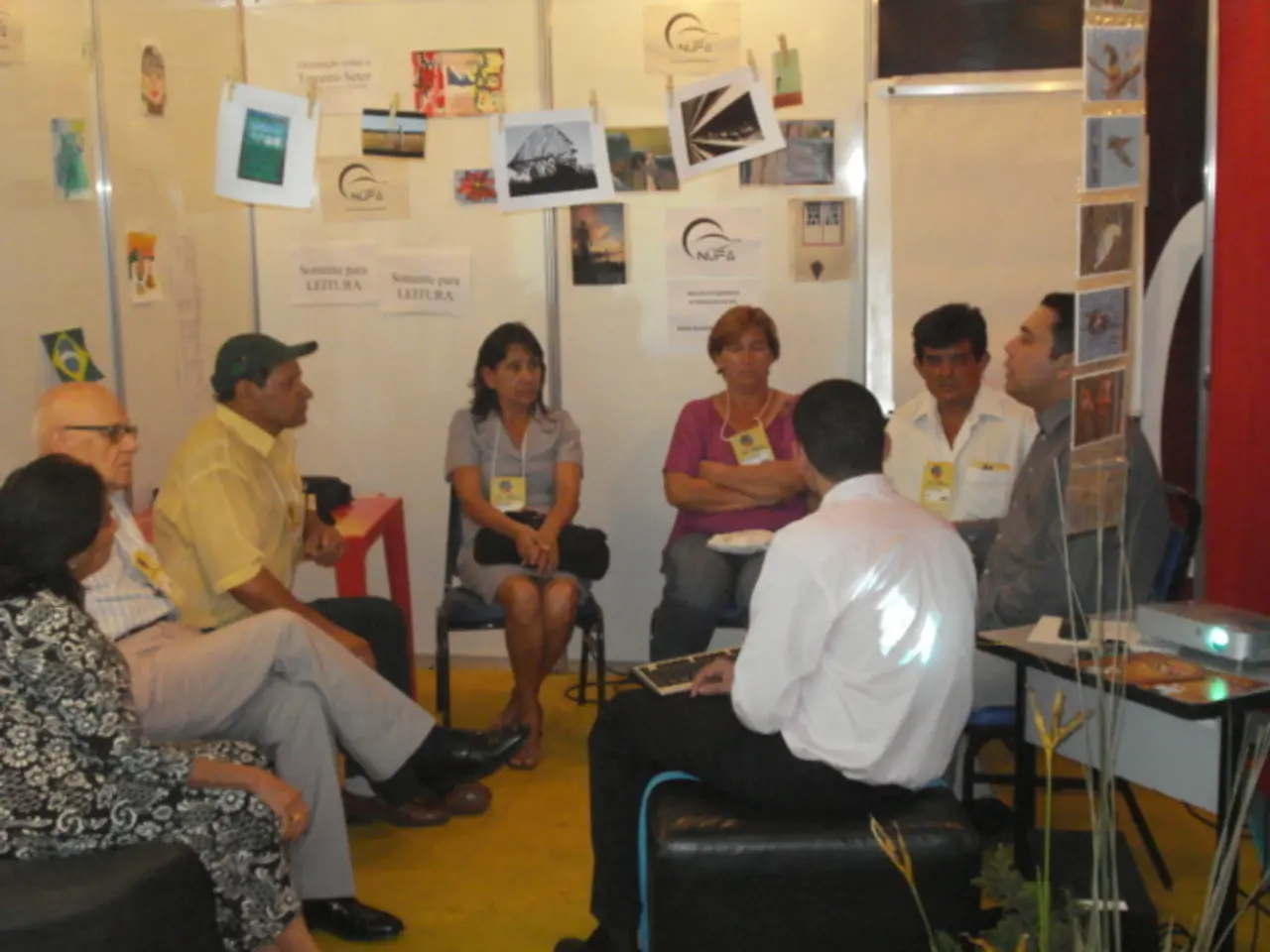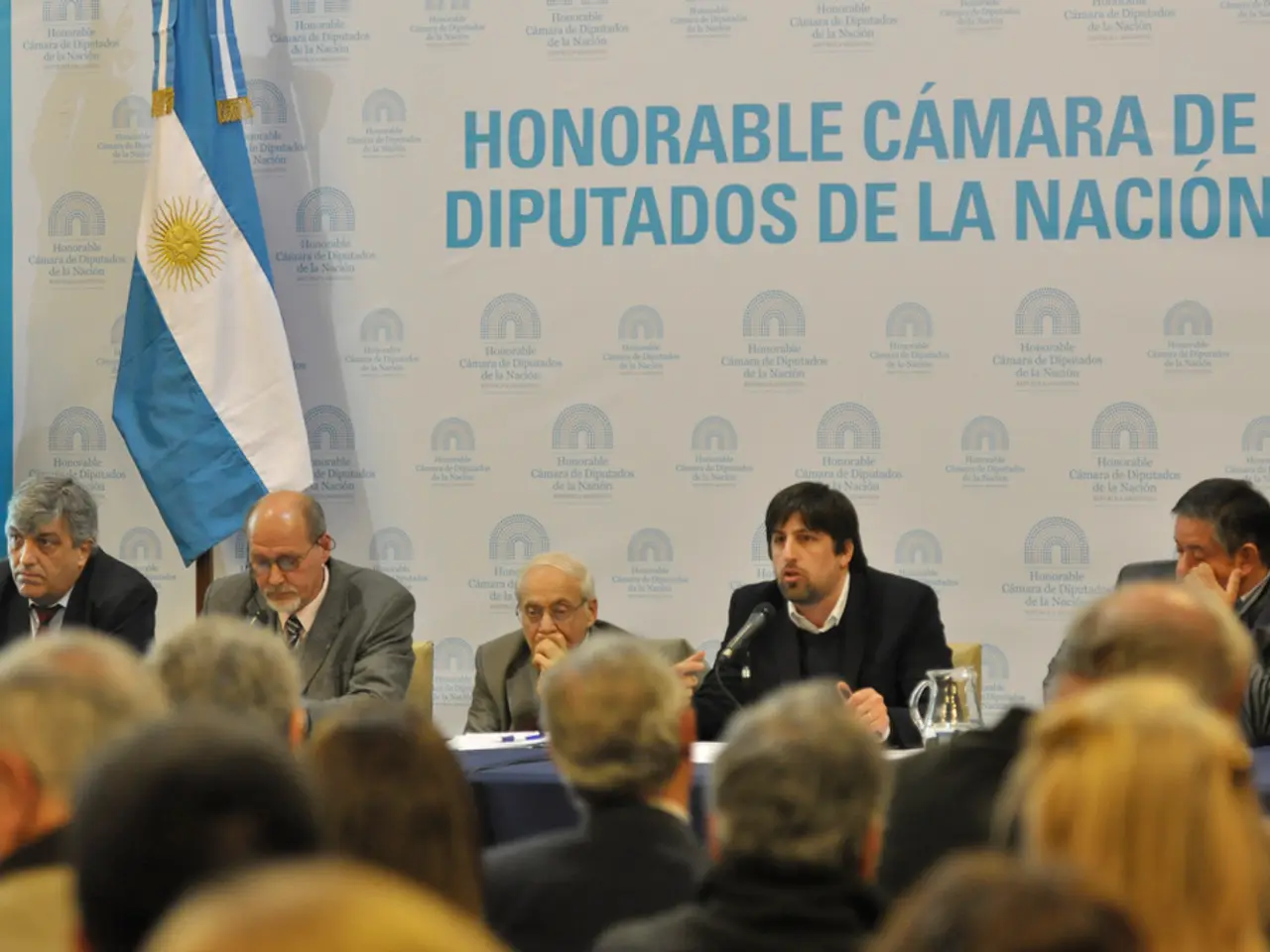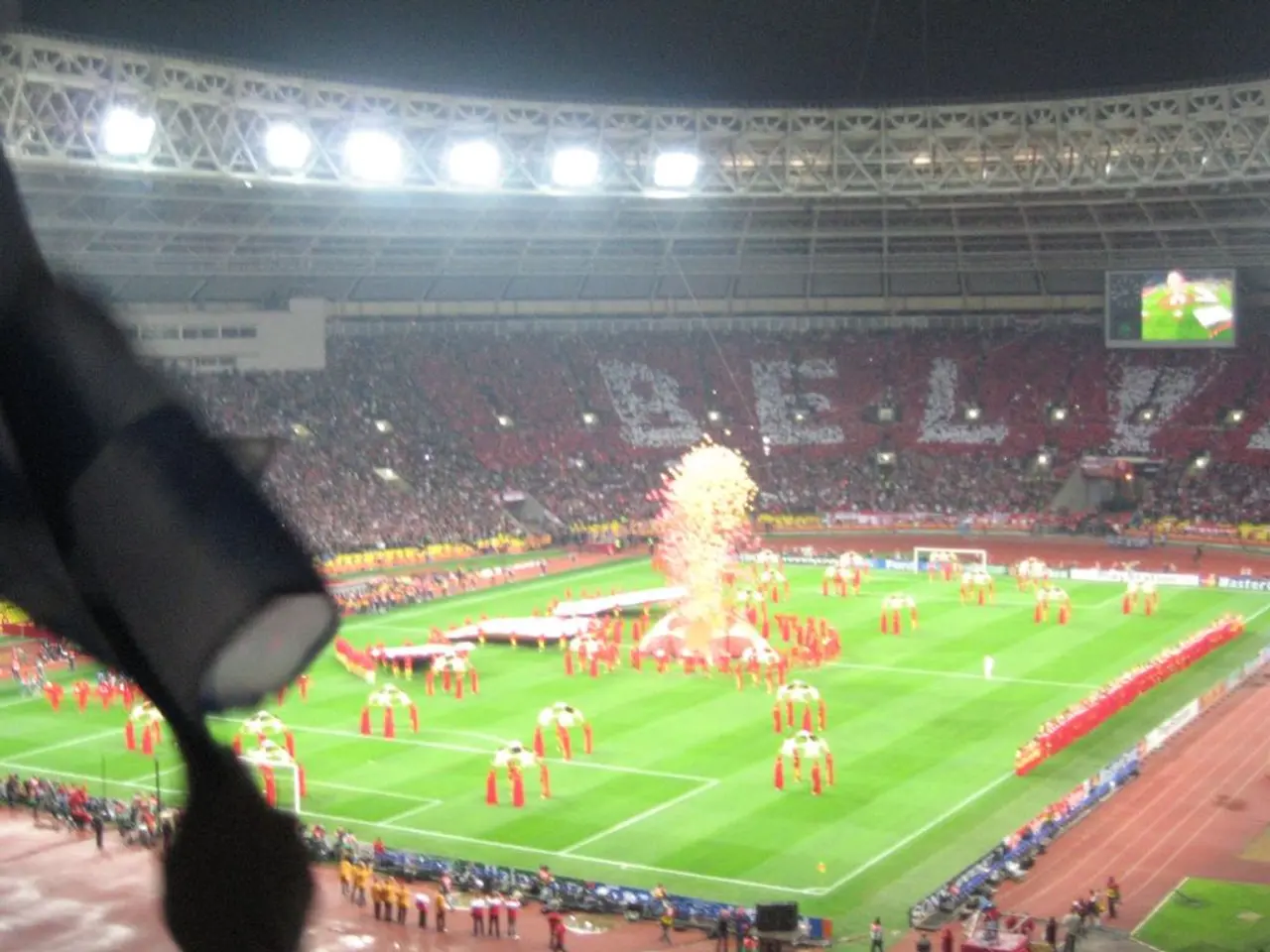Europe seeks to maintain dialogue with Iran in ongoing discussions
Geneva brawl: European powers weigh in on Iran's nuclear programme
After a grueling four-hour meeting with Iranian Foreign Minister Abbas Araghtchi, the foreign ministers of Germany, France, and the UK find themselves on the brink of a potential breakthrough. This diplomatic dance unfolded in the heart of Geneva, a city teetering on the edge of crisis.
The European trio, Johann Wadephul (German Foreign Minister), Jean-Noël Barrot (French Foreign Minister), and David Lammy (British Foreign Minister), left the encounter with a spark of hope. "The Iranian side seems to be genuinely interested in Continuing the talks," Wadephul shared, peppering his statement with optimism.
Iran appears to be ready for more round-table conversations, echoing Wadephul's sentiment. "We welcome the prospect of additional talks with our European partners and the EU as a whole," Araghtchi said, according to state news agency Irna. However, a crucial condition seemed to hang over the negotiations like a dark cloud—Israel's escalating attacks on Iran. "Until these attacks cease, we will not stand for any negotiations," Araghtchi warned.
The question lingers—will US President Donald Trump, a stalwart ally of Israel, join the fray or sit on the sidelines? History offers little insight, as Israeli Prime Minister Benjamin Netanyahu's appetite for peace with Iran remains a mystery.
Last week, the fuse was lit in a war that’s rapidly grown more dangerous. As Israel and Iran intensified their mutual attacks, the European top diplomats in Switzerland raced to gauge Iran's willingness to ease off its nuclear ambitions and abandon its pursuit of nuclear weapons.
The day before the talks, White House spokesperson Karoline Leavitt announced that President Trump would make a decision within the next two weeks regarding potential US intervention in the unfolding conflict.
Wadephul calls for US involvement
Wadephul emphasized the gravity of the situation, painting a grim picture for the entire region. "This situation is critical and volatile, and it is our shared goal to defuse tensions and make progress towards a peaceful resolution," he declared. However, one crucial component was absent from this equation—the United States.
"We strongly believe that the US must be part of these negotiations if we are to achieve a diplomatic solution," Wadephul emphasized, underlining America's indispensable role in the proceedings.
The Israeli-Iranian Tide of War
Iran's nuclear program sends shockwaves of concern throughout the region, and so does Germany's commitment to Israel's security interests. Germany particularly fears that Iran poses an "existential threat" to Israel. "I believe that the fastest and most effective way to neutralize this threat is through negotiations," Wadephul noted in an interview on ZDF's Heute Journal.
This precarious situation is far from insulated, with global implications. European countries fear the potential escalation, as threatened by Lammy: "We must avoid regional escalation at all costs—both for the sake of preserving peace and the well-being of our people, who are grappling with mounting economic concerns."
Despite the ongoing talks, the war rages on. Both Israel and Iran continue to wage attacks on each other. In the Israeli city of Haifa, at least 23 citizens were injured, with three suffering severe injuries, following an attack. Iranian media reported Israeli airstrikes on the port city of Bushehr, home to Iran's only nuclear power plant.
An Uneasy Calm Before the Storm
The conflict has led the British and Swiss, long-term representatives of US diplomatic interests in Iran, to close their embassies in Tehran. The British Embassy staff was temporarily withdrawn due to security concerns. The Swiss Foreign Ministry explained the decision as a response to the "intensity of military operations in Iran and the extremely unstable situation."
The UN Refugee Agency (UNHCR) is preparing for a possible surge in refugees from Iran. UNHCR chief Filippo Grandi revealed that the agency is developing crisis plans and is already receiving unconfirmed reports of refugees arriving in neighboring Armenia, Azerbaijan, and Turkmenistan.
Since the onset of the war, 24 lives have been claimed in Israel, while over 800 suffer injuries, according to official figures. In Iran, the death toll surpasses 650, with over 2,000 wounded, based on reports from the US-based human rights network HRANA. The Iranian government refrains from publishing exact figures on deaths and injuries.
- Evidently concerned about the escalating war-and-conflicts, Wadephul called for the United States' involvement in negotiations, stating, "We strongly believe that the US must be part of these negotiations if we are to achieve a diplomatic solution."
- Amidst calls for political action to resolve the ongoing Israeli-Iranian conflict, David Lammy expressed his concerns about the potential escalation, stating, "We must avoid regional escalation at all costs—both for the sake of preserving peace and the well-being of our people, who are grappling with mounting economic concerns."






